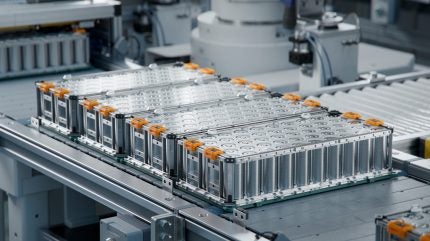
Toyota Motor has agreed to redirect a $1.5bn order to LG Energy Solution (LGES) to support operations at the Ultium Cells battery cell plant in Lansing, Michigan in the US, reported Bloomberg citing people familiar with the matter.
The decision follows General Motors’ (GM) withdrawal from the project, leaving South Korean joint venture partner LGES seeking alternative customers.

Discover B2B Marketing That Performs
Combine business intelligence and editorial excellence to reach engaged professionals across 36 leading media platforms.
In December 2024, GM said it plans to sell its $1bn stake in the facility, which was initially intended to play a key role in the automaker’s electric vehicle expansion.
The Japanese automaker was cited by the news agency as saying that transfer of Toyota’s existing order from another LG plant in Michigan is set to take place once LG fully acquires the Lansing site, anticipated to occur this spring.
LG was quoted by the news agency as saying: “This is part of our strategic objective to further optimise our investments in North America and also respond to the needs from global automakers.”
South Korean firms, including LG, invested heavily in the US-based EV battery plants, expecting demand to rise due to incentives under the Inflation Reduction Act.
However, automakers have been adjusting their EV strategies in response to slowing growth, and policymakers in the US have signalled potential changes to existing subsidies.
The batteries to be purchased by Toyota from LG are suitable for both electric and hybrid vehicles.
Furthermore, LG is exploring opportunities to supply battery production from the Lansing plant to the stationary storage sector, where demand has been increasing due to the expansion of data centres supporting AI applications.
Originally announced in early 2022, the Lansing plant was expected to be a key component of GM’s planned $35bn investment in EV, with a goal of launching 30 EV models by 2025 and creating 4,000 jobs.
However, shifting market conditions have led GM to scale back its EV ambitions.
The project was granted $186m in various state and local incentives, and GM is now working with the Michigan Economic Development Corporation to transfer those incentives to LG.






